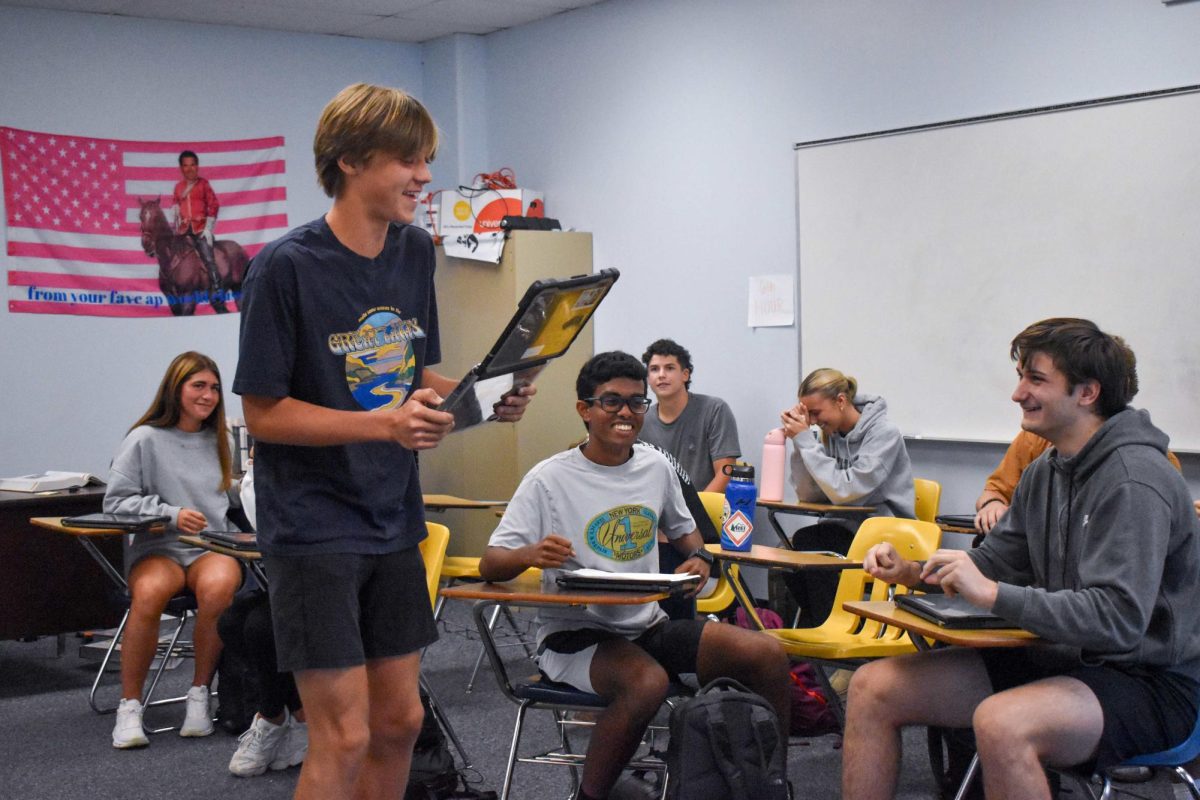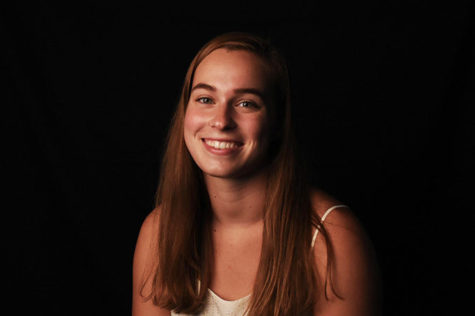![Junior Lauren Beard reads weather pattern graphs after attending an Earth Sciences camp this summer. At the camp, Beard explored her passion for meteorology with students from all over the United States. “[I] thought it was a great opportunity to see if this is something that I’m really interested in," Beard said. “I’ve just found myself drawn to that subject, I’ve always just found it really interesting."](https://pwestpathfinder.com/wp-content/uploads/2018/09/DSC_0285-900x598.jpg)
Junior Lauren Beard visited an atmospheric and Earth sciences camp at the University of Wisconsin (UW) over the summer to further her knowledge of meteorology.
“I’ve just found myself drawn to [meteorology],” Beard said. “I’ve always found it really interesting how [different events around the United States are] affecting us, like hurricanes.”
The camp, run by the Cooperative Institute for Meteorological Satellites Studies (CIMSS), covers more than just the weather.
“We focused on a broad variety of things. One day we did [a lesson on] astrology and went into a planetarium which was pretty cool because we saw how star patterns change every month,” Beard said.
Most of the meteorology information was given through lectures, except for a presentation by a research group based in Antarctica, who spoke about weather patterns.
“I found the hurricane talk interesting, because we don’t really talk about hurricanes in St. Louis,” Beard said. “It was really interesting because the public [of coastal cities] really depend on meteorologists to tell them when to evacuate and from which areas.”
Beard believes that attending camps about a specific field of study is important for high school students.
“I think going to camps gives kids an opportunity to see what they might be doing [in a certain career path],” Beard said. “I wish [the camp] was longer because I had so much fun.”
The camp had the unique appeal that it was located in Madison, WI, which is considered to be the ‘satellite capital of the world’ due to the large quantities of satellites on the UW campus.
“It was cool because it was so interactive,” Beard said. “That was the most I’d ever done with a satellite.”
Out of the 20 students in attendance, 15 were male and five were female.
“It was pretty unbalanced,” Beard said. “I think a lot of girls don’t see [sciences] as a career they can go in to.”
Beard sees this imbalance in her classrooms as well.
“[The imbalance] still surprises me,” Beard said. “I think there could be more of a push [for female inclusion of STEM fields].”
However, Beard does not think women in science is a lost cause.
“I think that as a community we need to start getting girls interested in science at a younger age,” Beard said. “We’re definitely getting better, but we’re not where we should be, yet.”



![Freshman Daphne Stokes looks at a table with Veterans Day flyers and information on Nov. 11. Stokes, along with other West High students, like senior Alexander Lewinski, passed by the table in the cafeteria with army recruitment information and giveaways for students to observe during lunch. “Talking with [the recruiters] has definitely helped me [find] where I wanted to go, more than anything else,” Lewinski said.](https://pwestpathfinder.com/wp-content/uploads/2025/11/DSC_1227-2-1200x800.jpg)
![Helping a customer, print room assistant Gretchen Williams operates her booth at the West High Craft Fair from Oct. 25-26. This was Williams’ first time participating in the Craft Fair with her new craft shop, Gs Beaded Boutique. “People have always said, over the years, ‘you should open something.’ [I replied that] I would rather just make [my crafts as] gifts for people. I just started [the online store] up, and it's been okay. I'm always surprised [by] how many views I get and [the] people from different states buying things; somebody from Alaska bought something the other day.”](https://pwestpathfinder.com/wp-content/uploads/2025/11/DSC0451-2-1200x799.jpg)
![Gesturing toward the club’s name on the board, Global Youth Aid co-president year Daniah Alsagheer discusses upcoming service projects with members during a meeting on Oct. 30. “We might be one club at one school, but together, we’re [part of] something much bigger,” Alsagheer said.](https://pwestpathfinder.com/wp-content/uploads/2025/11/DSC00949-1200x800.jpg)
![Focused on providing exceptional service, sophomore Darsh Mahapatra carefully cleans the door of a customer’s car. Mahapatra has always believed his customers deserve nothing less than the best. “[If] they’re trusting us with their car and our service, then I am convinced that they deserve our 100 percent effort and beyond,” Mahapatra said.](https://pwestpathfinder.com/wp-content/uploads/2025/10/DSC_0018-1200x800.jpg)
![Sophomore Aleix Pi de Cabanyes Navarro (left) finishes up a soccer game while junior Ava Muench (right) warms up for cross country practice. The two came to Parkway West High School as exchange students for the 2025-2026 school year. “The goal for the [exchange] program is to provide opportunities for both Parkway students and our international exchange students to learn about other cultures, build connections and become confident, capable, curious and caring — Parkway’s Four C’s — in the process,” Exchange Program Lead Lauren Farrelly said.](https://pwestpathfinder.com/wp-content/uploads/2025/10/Feature-Photo-1200x800.png)

![Gazing across the stage, sophomore Alexis Monteleone performs in the school theater. The Monteleone family’s band “Monte and the Machine” has been releasing music since 2012, but Alexis started her own solo career in 2024 with the release of her first single, Crying Skies. “My whole family is very musical, [and I especially] love writing [songs with them],” Monteleone said.](https://pwestpathfinder.com/wp-content/uploads/2025/09/DSC7463-1200x798.jpg)
![Amid teaching a lesson to her AP Calculus BC class, Kristin Judd jokes alongside her students in their funny remarks. Judd has always enjoyed keeping the mood light in her classroom, along with on the volleyball court. “[I enjoy] that side talk where you see [or] overhear a conversation and chime in, or somebody says something funny,” Judd said.](https://pwestpathfinder.com/wp-content/uploads/2025/09/image-1200x730.jpg)
![Eyeing the ball, junior Ella McNeal poses for her commitment pictures at Clemson University. McNeal’s commitment comes after months of contact with top Division 1 soccer programs. “ It has taken a lot to get to where I am, but I know that [what] I've already been through is just the beginning, and I can't wait for what is to come,” McNeal said.](https://pwestpathfinder.com/wp-content/uploads/2025/09/IMG_4926-1200x900.jpeg)
